Diary of a Book Addict: Stories of love, loss and family
Australian writer Susan Johnson’s account of a Greek island adventure with her mother struck a chord with our books columnist this month. She also recommends three other books exploring love, loss and family, including Wiradjuri woman Brenda Matthews’ heartbreaking quest to discover the truth about her past.

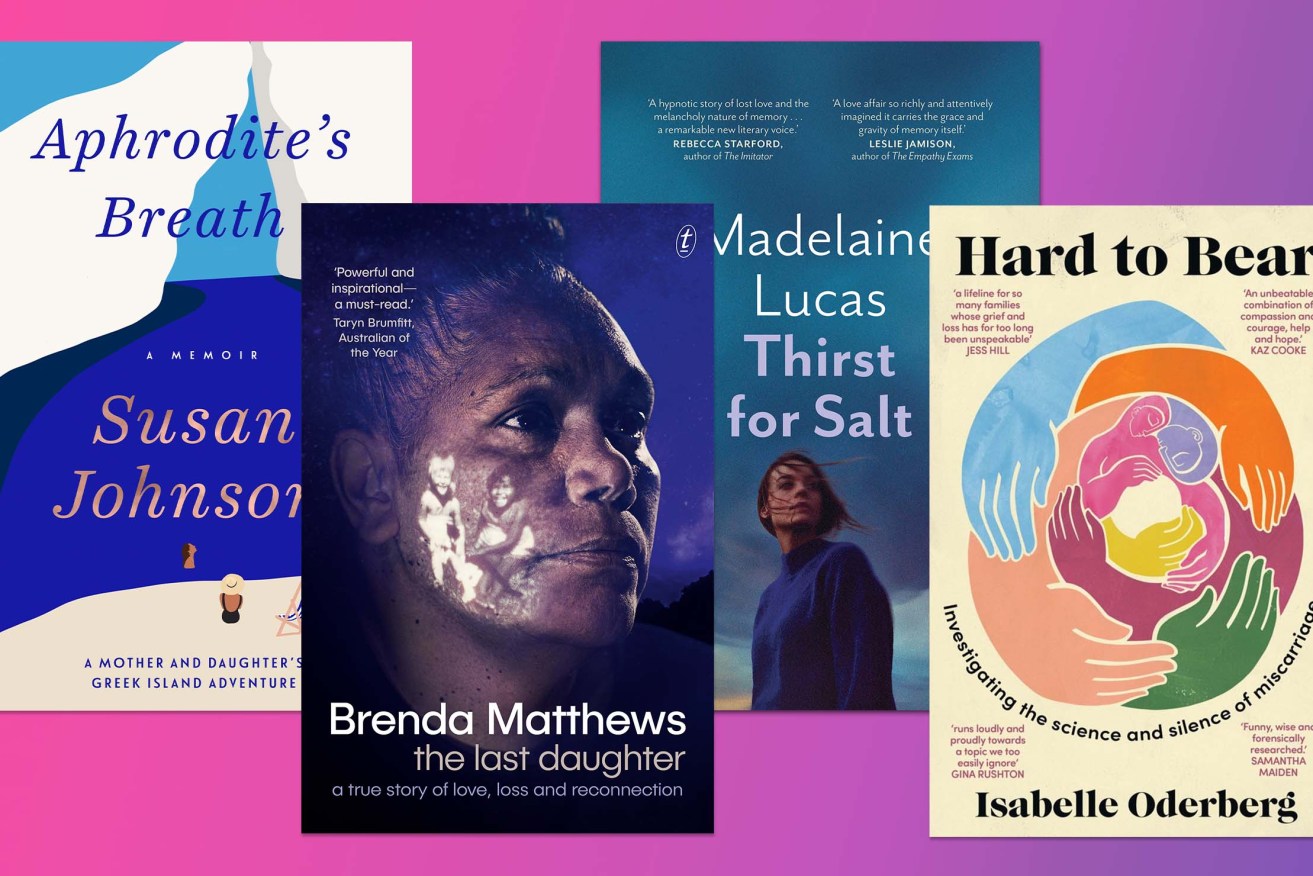
My own mother, I suspect, dislikes it when I write about her. (Sorry Mum! Here I go again.) “Why don’t you write fiction?” she once suggested, at a time I’d published a memoir and two anthologised essays in which she’d been a key character within three years.
Soon after, during a family barbecue, she leaned across the table and said, as if joking: “Why don’t you write something that would make you money? Something I’d like to read?” A detective story, she suggested. Or historical fiction, like Hannah Kent.
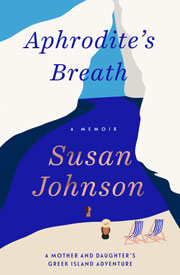 When Susan Johnson, aged 62, moved to the Greek island of Kythera with her 85-year-old mother Barbara, it was understood from the start she’d be writing about her: their sojourn was partly funded by Susan’s modest two-book advance. The second book was Aphrodite’s Breath (Allen & Unwin), a memoir of their year in Greece. And writing – the creation of the book itself, and Susan’s occupation as a writer – is a central thread. It’s how she experiences and processes the world.
When Susan Johnson, aged 62, moved to the Greek island of Kythera with her 85-year-old mother Barbara, it was understood from the start she’d be writing about her: their sojourn was partly funded by Susan’s modest two-book advance. The second book was Aphrodite’s Breath (Allen & Unwin), a memoir of their year in Greece. And writing – the creation of the book itself, and Susan’s occupation as a writer – is a central thread. It’s how she experiences and processes the world.
Barbara was fiercely proud of her daughter’s work (so is mine, I should say), but she also “knew writers are weasels who want the last say and who feel obliged to remake the world in their image”.
Aphrodite’s Breath is emblazoned with the tagline, “A mother and daughter’s Greek adventure”; its stylish cover beckons with the promise of cosy armchair travel and vicarious escape. And it does deliver on this front. There are comic misadventures: a drafty house patched up with something like packing tape, an earthquake, miscommunications with a local who turns up daily for coffee though he can’t speak English and they can’t speak Greek.
Local history is woven throughout, from the island’s storied origins as the birthplace of Aphrodite and meeting place of Paris and Helen, to a long-ago mother tragically separated from her sons (who fascinates grieving empty-nester Susan). And the book is studded with stunning descriptions of place, food and festivals: silky seas, crumbling castles; honeyed cheeses, freshly caught octopus and salty homemade pita; churches gleaming with candles and rich with song at Greek Easter.
But Aphrodite’s Breath is so much more than that: it’s a disarmingly honest evocation of a mother-daughter relationship that is deeply loving and committed (as the book’s very premise suggests), but also authentically flawed. It’s in the faultlines of this relationship – the mother and daughter’s conflicting needs and desires, stemming from their very different personalities and life trajectories – that each character comes vividly alive to the reader, in all their eccentricities and specificity. This depth and grit, rarely found in this genre, is one of the elements that makes this book special.
The other is the sheer pleasure of its execution. Johnson is a natural writer, her skills honed by decades of dedicated practice and aided by what seems an innate attunement to the world. Her magpie ear for dialogue and sharp observational eye combine with a secret introvert’s learned affinity for analysing mood and behaviour (she calls herself a person “pitched like a tuning fork to the sensitivities of any room”) and a sensuous, bone-deep embrace of novelty and beauty. Of course, all of this is heightened by the novelty of travel. She writes, “perhaps this was why people travelled – to be shocked into seeing the world anew, or again: to be prodded into seeing”.
Structured around a 60-something sojourn that revisits a place the author fell in love with in her early 20s, Aphrodite’s Breath is also a book about mortality. It’s about how ageing changes us, and how it doesn’t – how it can make us intensely more ourselves. And it’s about longing: for places left, selves shed and potential glimpsed. And for the people we love, as life moves through its stages and we lose their physical presence. Susan’s loss of Barbara while writing this book haunts its pages; the book also preserves her.
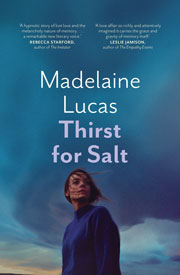 Mothers and daughters are central to Madelaine Lucas’s gorgeous debut novel, Thirst for Salt (Allen & Unwin). So are longing and loss. The novel opens with the narrator, a writer in her 30s, finding a social media photo of her much-older first love, Jude, with a child. She’s childless and staying with her mother, who “has hardly left the subject of children alone”.
Mothers and daughters are central to Madelaine Lucas’s gorgeous debut novel, Thirst for Salt (Allen & Unwin). So are longing and loss. The novel opens with the narrator, a writer in her 30s, finding a social media photo of her much-older first love, Jude, with a child. She’s childless and staying with her mother, who “has hardly left the subject of children alone”.
The discovery sparks a deep dive into the past: the long-ago mother-daughter small-town beach holiday, aged 24, where she met 42-year-old Jude, a local furniture maker who lived off the beach and worked in a local antique shop. There’s a frisson from the start: her youth and inexperience; his passionate interest balanced with a diffidence that could be chivalry about the age chasm (“eighteen years – a whole adolescence, a coming of age”), or a murkier emotional avoidance.
I confess I’m a bit sick of novels about beautiful, messed-up young women having toxic sex and chaotic lives. I have loved some that arguably fall into this category (Sorrow and Bliss, Love & Virtue, Exciting Times – and, yes, though it’s unfashionable to say now, Sally Rooney). But the trend has become boring, with many of these novels feeling imitative. So, despite being lulled into spending time with Thirst for Salt by its poetic phrasing and pleasingly rhythmic prose, I held myself back (like Jude, I suppose). But I soon surrendered my resistance: initially charmed, then moved. And while the narrator has an absent father and a lover old enough to be her father, and is a beautiful bohemian, with her wardrobe of frayed silk op-shop dresses and her job at a second-hand bookshop, this novel transcends literary cliches.
Lucas captures something authentic about first love, and youth: an immersive quality that can prompt you to deliciously lose yourself, but also risk drowning. The narrator is equipped with scarce tools for navigation: everything is new and being learned for the first time, from the sensations that grip her body to the intricacies of a relationship, to reading another person intimately. She pretends to sophistication, but of course she’s the opposite. Lucas takes tropes (older man-younger woman, coming-of-age novel) and fully inhabits them with specificity, making them compelling and alive, instead of tired and stale.
Thirst for Salt moved me on another level, too; in its portrayal of family. The narrator’s artist single mother moved house constantly, her boundaries were loose and the child was teased as “my little puritan” when she scolded her mother “to stop smoking or put a jacket on”. In a sense, the narrator longs for the security her childhood lacked – and perhaps her rebellion of moving in with a much older man and becoming a homebody was a response to that. But her closeness with her mother (and the younger half-brother she adores) is also palpably real: not toxic but specifically flawed, as even the most covetable relationships are in some way.
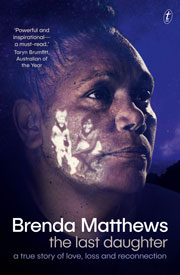 Wiradjuri woman Brenda Matthews’ memoir The Last Daughter (Text) tells the story of two mother-daughter relationships – and two families, both violently ruptured and re-made, with great heartache and effort. When she was two years old, in 1973 – three years after legislation was passed to officially end government policies that created the Stolen Generations – she was taken from her parents by Welfare officers, along with her six siblings. Her mother had taken her sick sister to the hospital, reluctantly (out of a fear that exactly this could happen). A nurse there was notorious for reporting Aboriginal patients to Welfare for having sick children.
Wiradjuri woman Brenda Matthews’ memoir The Last Daughter (Text) tells the story of two mother-daughter relationships – and two families, both violently ruptured and re-made, with great heartache and effort. When she was two years old, in 1973 – three years after legislation was passed to officially end government policies that created the Stolen Generations – she was taken from her parents by Welfare officers, along with her six siblings. Her mother had taken her sick sister to the hospital, reluctantly (out of a fear that exactly this could happen). A nurse there was notorious for reporting Aboriginal patients to Welfare for having sick children.
You’ve probably read a version of this part of the story, it’s so disgustingly ubiquitous: Welfare turned up, the children ran as they’ve been taught to, but it was to no avail. Her mother reflects of the afternoon her children were taken: “Her name of the last eight years, ‘Mummy’, was gone, replaced with silence.” And once the children were gone and the family charged with neglect, it was punishingly difficult to get them back. (This is a pattern – of poverty, particularly in Black families, being criminalised as “neglect”, and children taken from loving families with depleted resources – that is still repeated today, in Australia and elsewhere.)
Brenda’s parents, a pastor and a housewife (who kept a spotless house), fought the courts for years, and eventually all their children were returned, in stages. Archival records Brenda managed to retrieve, decades later – again, in stages – showed evidence that the charges were false, and that the government records had been falsified. This incredible story is plainly but evocatively told: not just from Brenda’s perspective, but from that of both her families.
Brenda spent five years, from ages two to seven, with a white family she was placed with, who loved her. They were first told her single mother had given her up; later, that her father was an alcoholic (which was untrue). They were also led to believe they were adopting Brenda, not fostering her. When she was taken back to her Aboriginal parents, she didn’t know they existed: she had no memories of them. So, she was twice torn from a loving family.
“I feel like an intruder … I feel like I have to erase the memories of my white family so that I don’t upset my black family. But I don’t want to forget my white family, just the opposite.” Decades later, as an adult and mother, she tracked them down and reconnected with them.
She also journeyed deeper into her past, and forged deeper connections with her Aboriginal culture. She discovers she is Wiradjuri on a trip to see a Wiradjuri historian Kim Burke: her mother has to reassess who she thinks she is and where she thought she was descended from. “This is common for a lot of Indigenous people who were taken from their Country and placed somewhere else,” Burke tells her. She is also the source of the news that Brenda’s maternal grandmother and great-grandmother were also stolen. “Maybe it was too hard to talk about,” Brenda concludes.
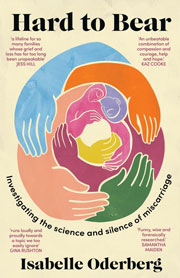 Journalist Isabelle Oderberg tells her own punishingly difficult story about motherhood in Hard to Bear (Ultimo), a comprehensively researched mix of memoir and journalism that explores the experience of miscarriage. Statistics suggest “at least one in four of your friends who have been pregnant have experienced miscarriage, as well as others who weren’t even aware they were pregnant”, Oderberg tells the reader.
Journalist Isabelle Oderberg tells her own punishingly difficult story about motherhood in Hard to Bear (Ultimo), a comprehensively researched mix of memoir and journalism that explores the experience of miscarriage. Statistics suggest “at least one in four of your friends who have been pregnant have experienced miscarriage, as well as others who weren’t even aware they were pregnant”, Oderberg tells the reader.
Drawing on her own personal experience of losing seven pregnancies (and having two children), Oderberg actively combats the silence around miscarriage that makes what is often a heartbreaking experience even harder. This book works on a number of levels: it provides comfort and companionship to those who’ve experienced miscarriage; it illuminates the experience for those who haven’t; and it investigates the research for better information on why and how it happens, and why miscarriage rates seem to be rising (answers include industrial pollution and more older mothers).
Oderberg takes us inside her experiences with medical professionals (good and bad), compares the public and private systems, and shares dos and don’ts for comforting people who’ve suffered loss. This advice extends to criticising hospitals who compound patients’ grief when their pregnancy losses are treated in the same consulting rooms and wards as people with healthy pregnancies and newborns. It’s one small example of the way Oderberg’s book ranges from individual, personal experience to systemic and cultural problems – which makes it not just broadly useful and relevant, but an impressive achievement.
Jo Case is a monthly columnist for InReview and deputy editor, books & ideas, at The Conversation. She is an occasional bookseller at Imprints on Hindley Street and former associate publisher of Wakefield Press.
Note: This column series was previously published with the title Diary of a Bookseller.




